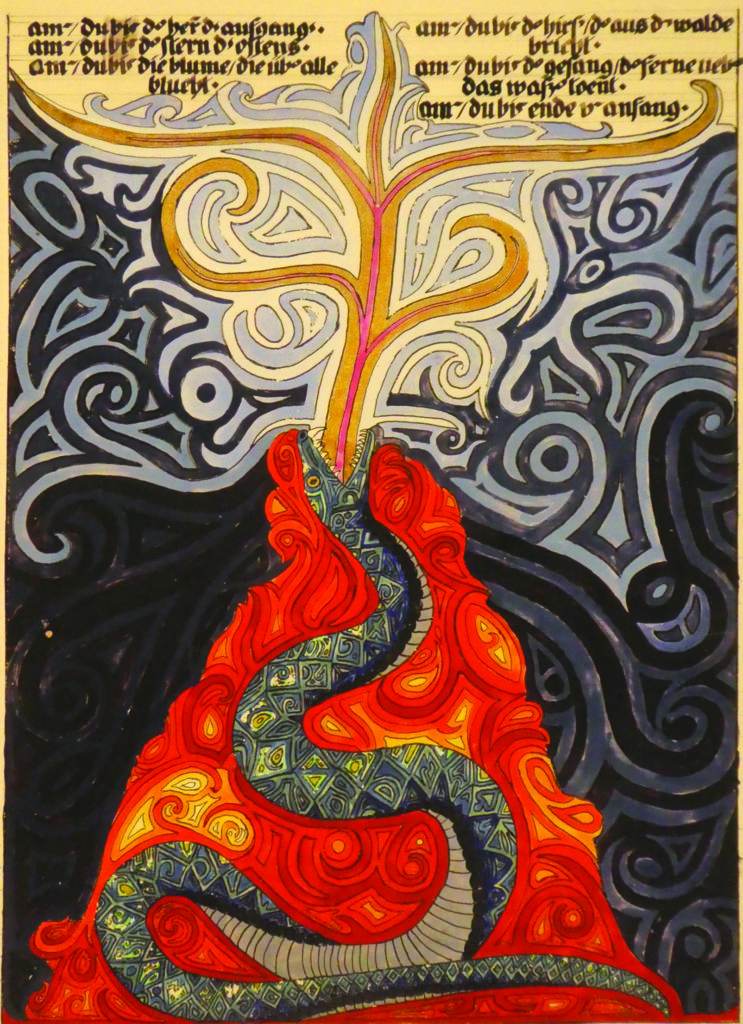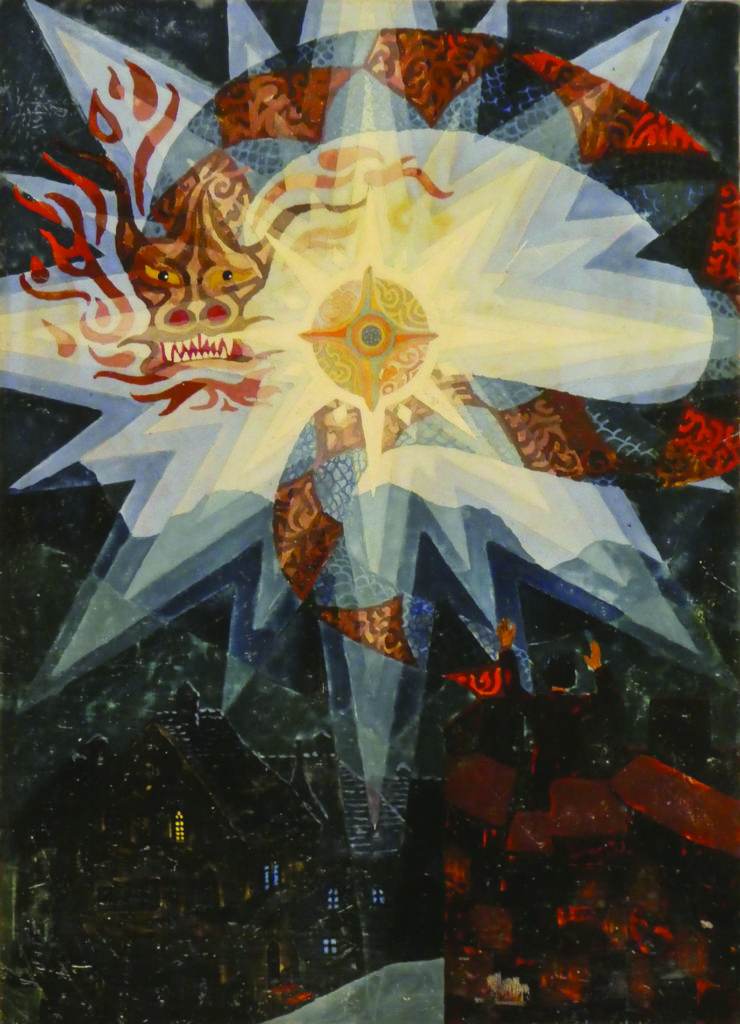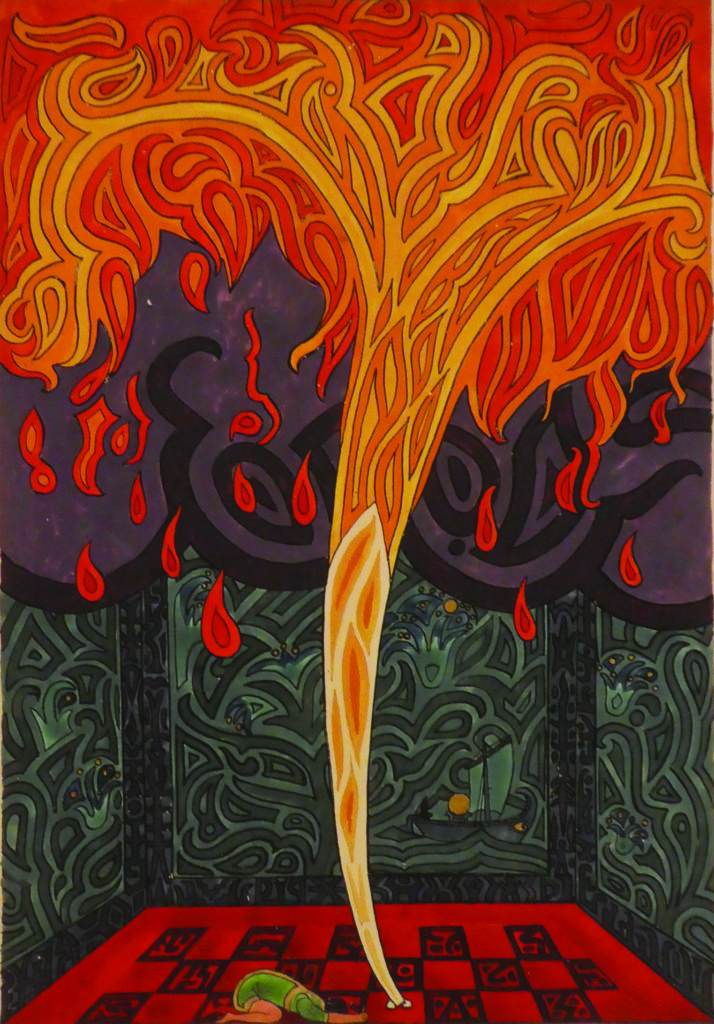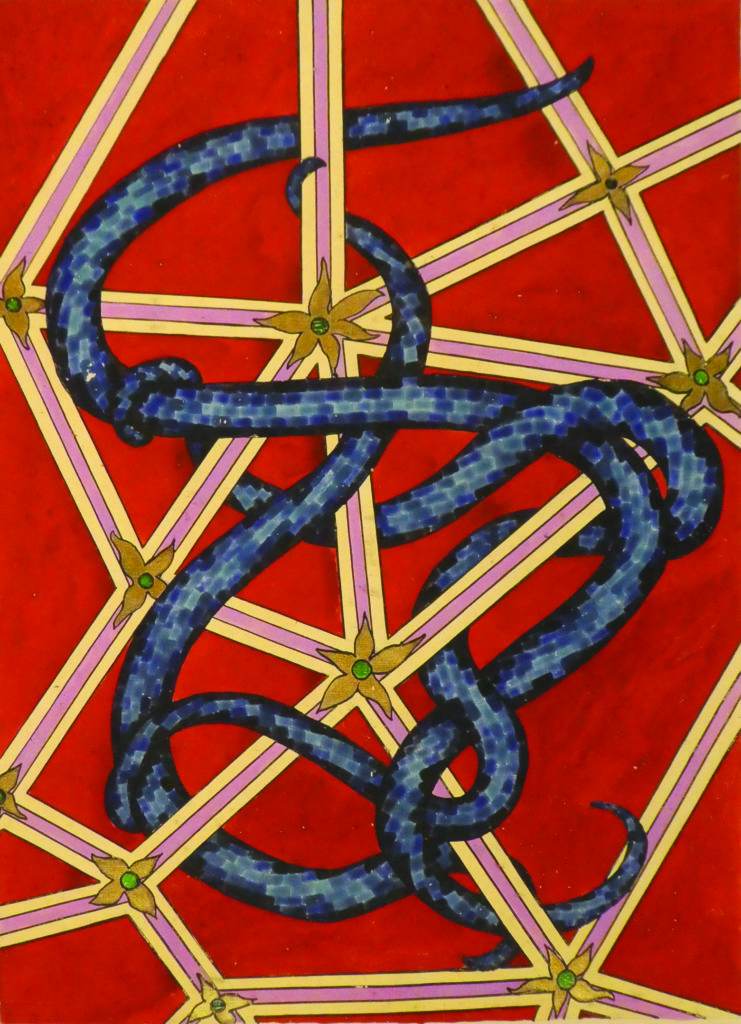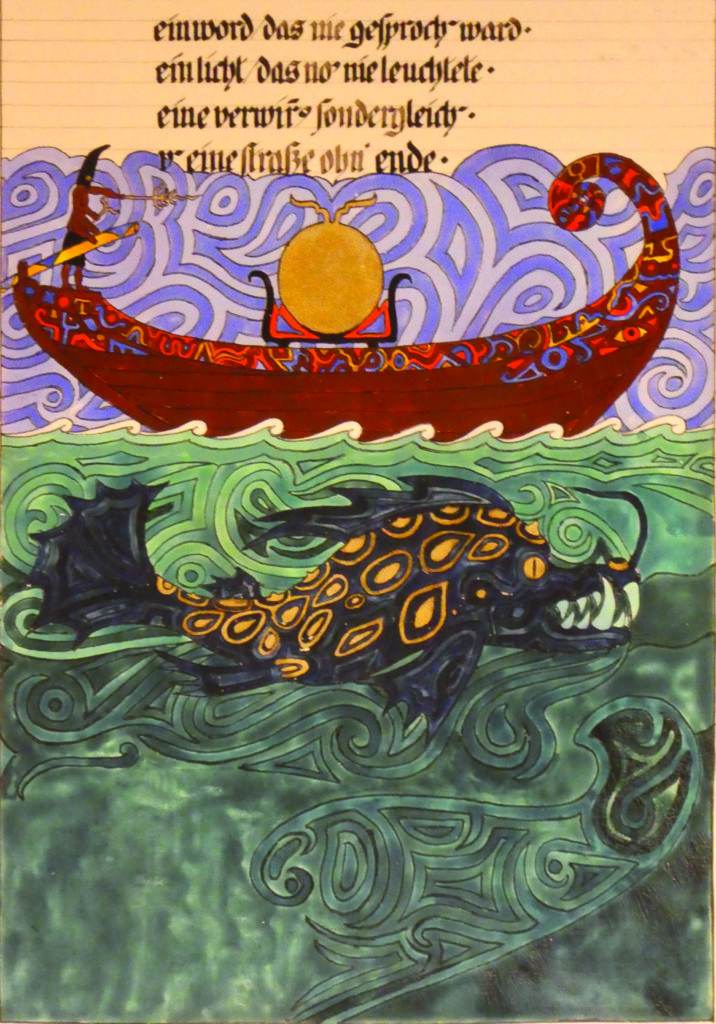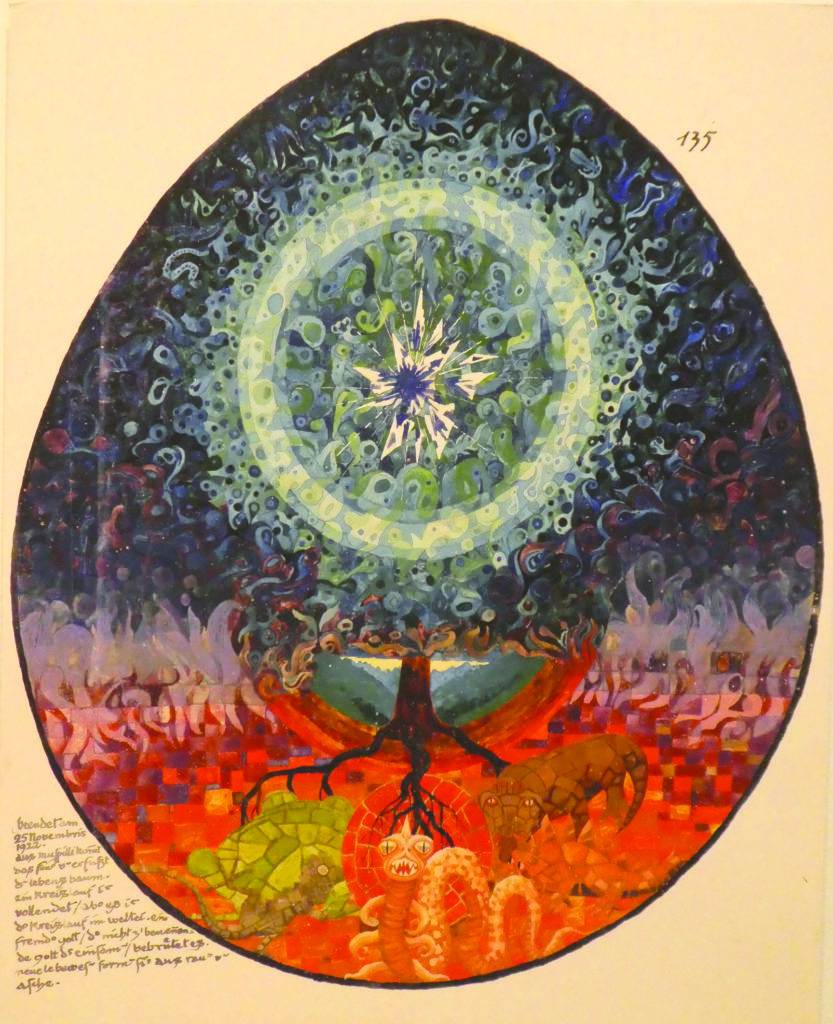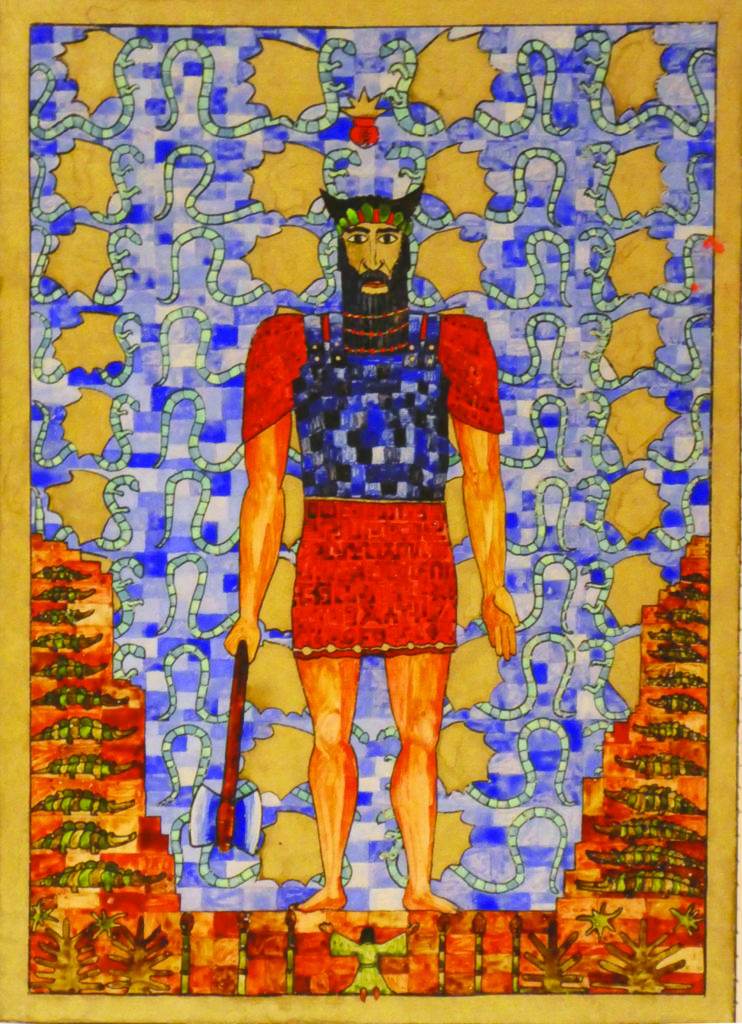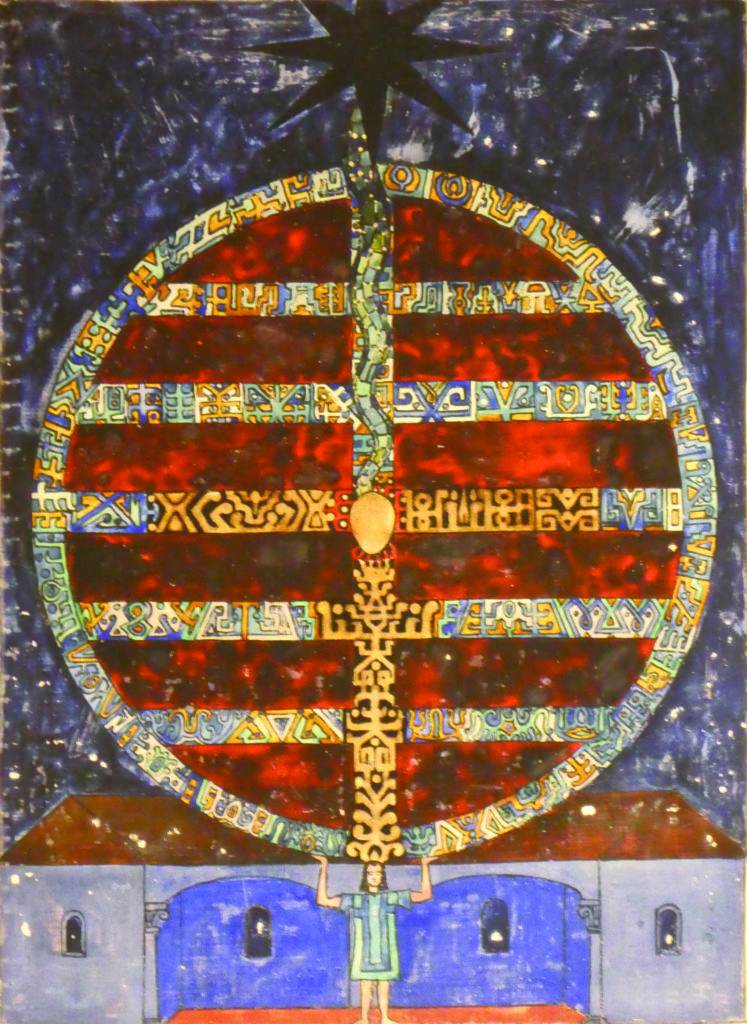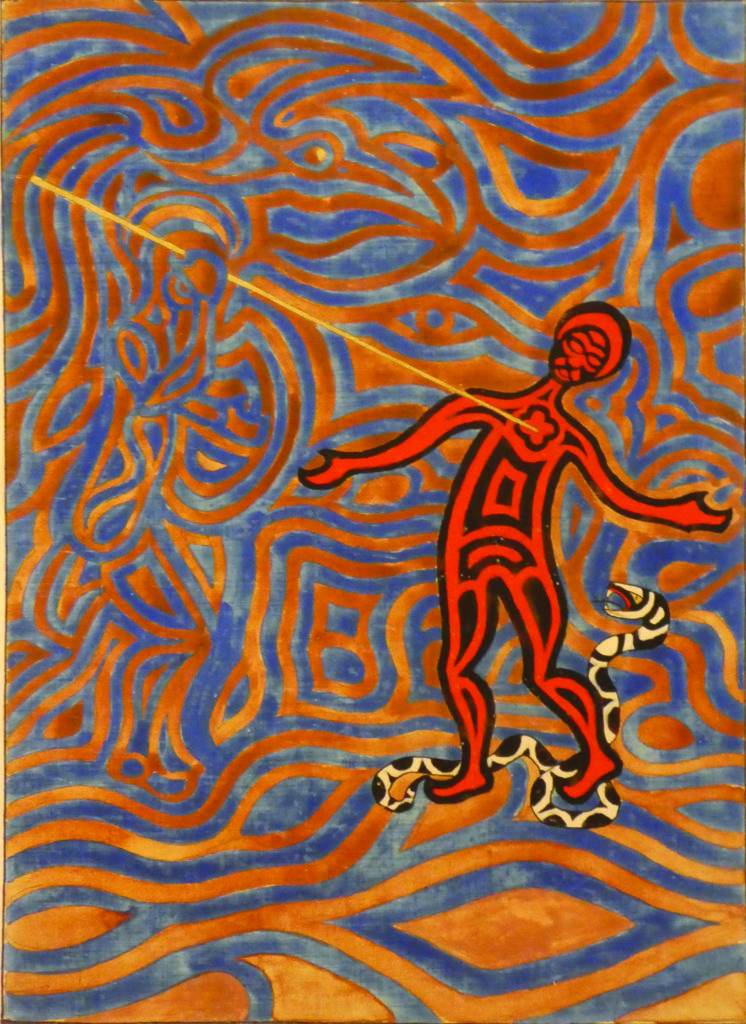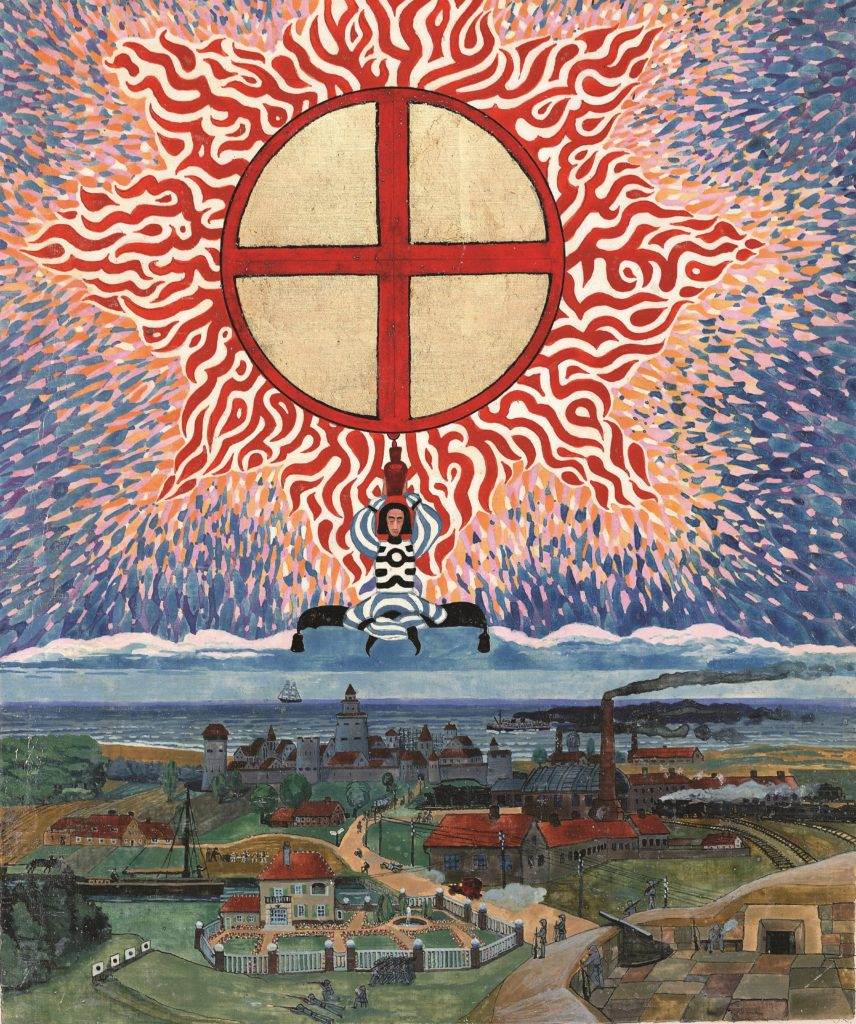
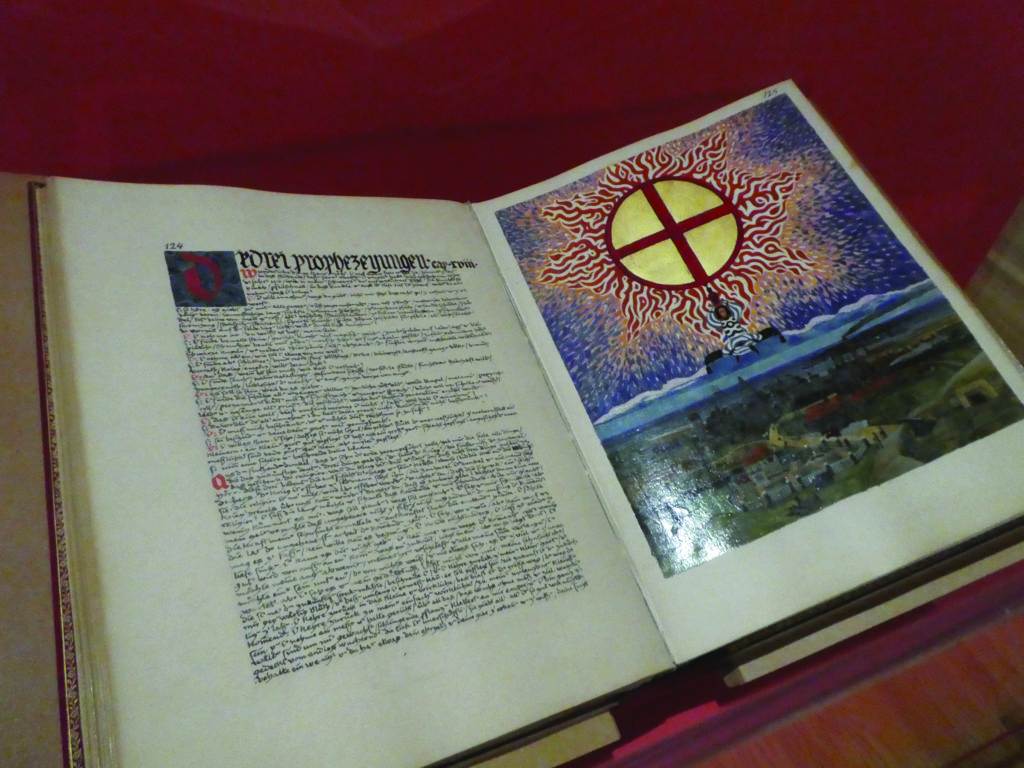
Carl Gustav Jung, the famed psychologist who ruefully parted from his mentor Sigmund Freud in 1913, wanted their psychoanalytic framework to include esoteric spiritual archetypes—something Freud dismissed. Deeply pained by the rift and the overwhelming violence of World War I, Jung retreated into a protracted introspection—a kind of controlled psychosis. His soul journey was meticulously documented via elaborate dream paintings and calligraphy that were compiled into a massive leather-bound book, the Liber Novus (the Red Book). Jung would later say of the Red Book, “All my works, all my creative activity has come from those initial fantasies and dreams.”
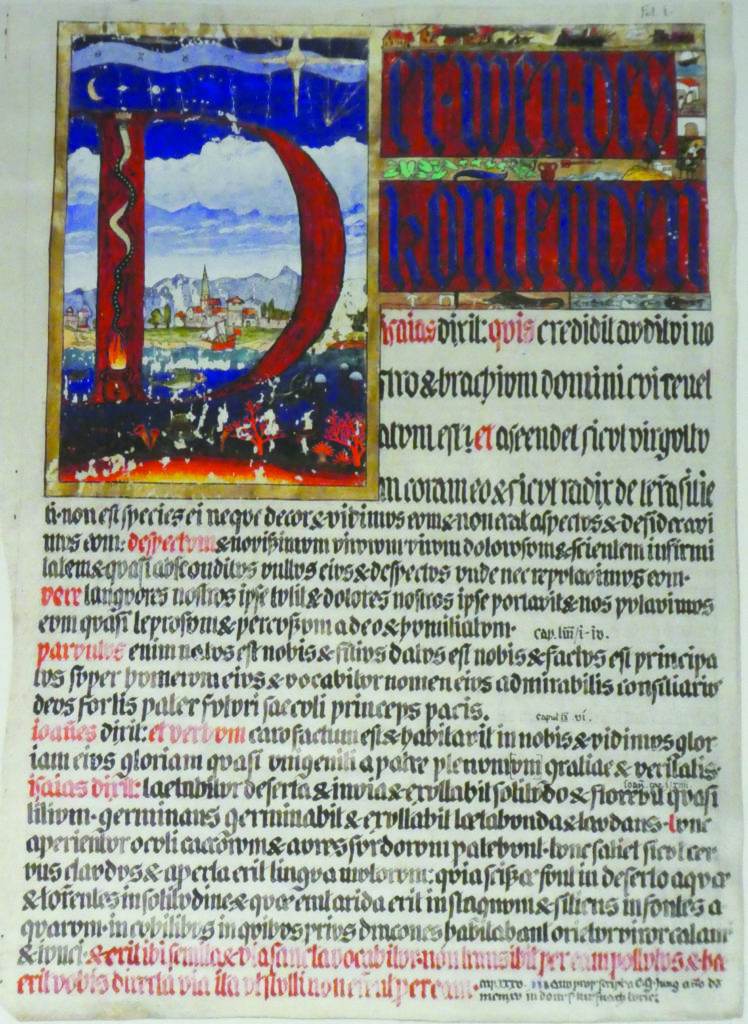
The unique manuscript was kept secret for decades and became available to the public only in 2009. The original document, vaulted for decades, rarely leaves Switzerland except for a recent trip it took as part of The Illuminated Imagination: The Art of C.G. Jung exhibition at the University of California at Santa Barbara’s Art, Design, and Architecture Museum.
We at Common Ground had been privately musing as to Jung’s state of consciousness. Was he a full-blown mystic? Who knows? But we seized the opportunity to make the pilgrimage to Santa Barbara for a firsthand view of the paintings and they were wonderful. As a bonus we were allowed to take photos of the exhibition and these are represented in this pictorial.
It’s impossible to summarize the impact of Jung’s life but we think at the minimum he deserves yet another title—the Father (albeit inadvertently) of Psychedelic Art. We hope you enjoy the images and become inspired to creatively unravel your own inner mystic.
<hr>
All photos by Rob Sidon from The Illuminated Imagination: The Art of C.G Jung, Art, Design, and Architecture Museum at UCSB. Page numbers correspond to the original Red Book pages.
